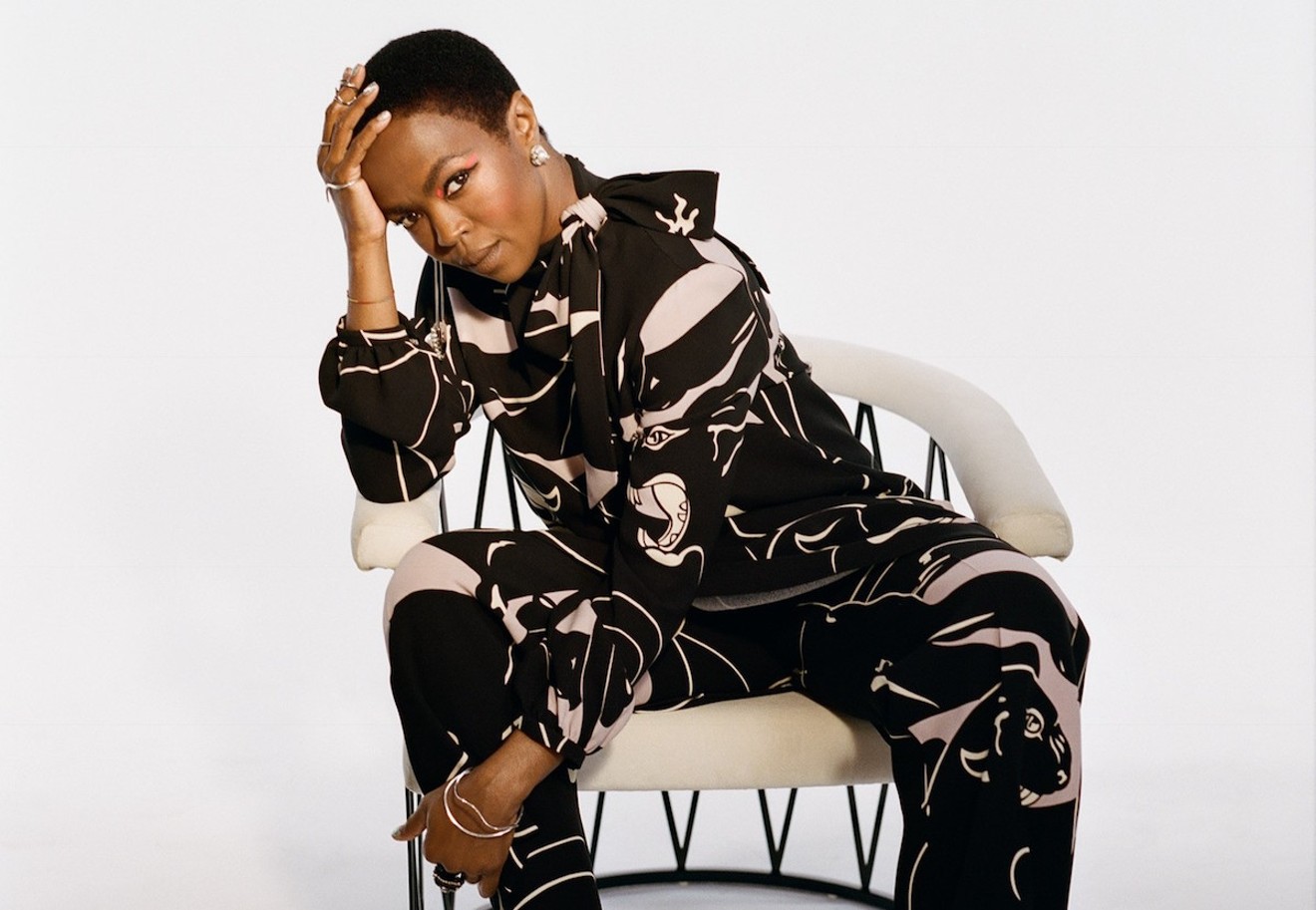In 1999, when I attended Florida International University, everyone, including the three other women living in my dingy dorm apartment, was obsessed with The Miseducation of Lauryn Hill. Many songs on the album spoke directly to us. At the South Beach and Coconut Grove clubs where we
The CD lived in my car. I was 19, so I was always heartbroken. After I played this album, my Buick Skylark was soaked with tears and battered with raw emotion. Those perfect breakup songs, like “Ex-Factor,” “Lost Ones,” “When It Hurts So Bad,” and “I Used to Love Him,” let young women like my sad ass know it was OK to feel and express our pain, that dudes can really suck, that rejection is part of life, and that if you’re Lauryn Hill, you can use that misery to make one of the best, most enduring works of musical art.
In The Miseducation of Lauryn Hill, the singer-songwriter documented what it looks and feels like to be a dynamic woman. Hill was a black female who created an honest self-portrait, and the whole world was listening. Her album was powerful because she didn’t shy away from the politics of race or gender — she showcased the beauty in her heritage and heartbreak. She warned women to take care of themselves and also discussed her bold choice to have a child at what, some assumed, would be the height of her fame.
Her voice was so strong that, to this day, it feels as immense as it did in 1998. Some (men) have criticized her for performing the 20-year-old work on her new tour. One complaint is that she hasn’t made anything remarkable recently and thus has lost her relevance. Well, when you write the novel of the century, you don’t need to continue blogging. The Miseducation of Lauryn Hill is bigger than whatever is expected of it. It offers women an education on their dynamic humanity because, with it, Ms. Hill reveals her own.
Hill wrote the album after leaving the Fugees and discusses some of that drama on “I Used to Love Him,” a song about a married Wyclef Jean. It was released August 25, 1998, by Ruffhouse Records and Columbia Records. Sonically, it’s catchy as hell, a mix of hip-hop, R&B, and reggae, all soulfully sung with plenty of biblical references. The album is indeed a sacred space, like her church. She talks about money, power, and righteousness. Is it a bit preachy? Sure. It’s also sexy as hell with “Nothing Else Matters,” which rivals D’Angelo’s finest in its sensuality.
Songs on this album, like “Doo-Wop (That Thing),” increase positivity in the black community. The album is blatantly a social and political statement. Its title alludes to the film and autobiographical novel The Education of Sonny Carson, about a black teen who spends his early life in gangs or incarcerated and is changed by his experiences and becomes a crime-fighter. It’s also a reference to The Mis-Education of the Negro, Carter G. Woodson's book that states that black people are being culturally indoctrinated or conditioned, not taught, while in school, which forces them to give up their power and be controlled by white people. Lauryn Hill underwent a transition and unshackled herself from a toxic relationship with Wyclef Jean and the entirety of this racist society, and then she made art about it.
In “Every Ghetto, Every City,” Hill is “looking back” at “the streets that nurtured Lauryn Hill” in New Jersey, where she was “unaware of what we didn't have.” The interludes between songs give voice to young kids whose words are so often ignored. Poet and politician Ras Baraka
I still hear them when I play the CD in my car. Three years ago, when my beloved cat was dying, I sang those songs to him. “To Zion” was on repeat. The song is about Rohan Marley and Hill’s unexpected son to whom they gave that heavenly name. It’s about becoming a mother and the wonder of being fully responsible for another creature. My cat was my immediate family, the one animal who gave me joy. Sure, he walked on four padded feet and had no language skills, but I loved him like a child. It was easier, in fact, to love him than to love a human being, because he demanded so little.
Less than two years later, I gave birth to my unexpected human son. He is my “Zion.” I sing that song to him too because he has changed me. Caretaking is not an easy job, but it is not thankless, and your child is your anchor, your joy, and worth it. Hill captures those good feelings perfectly in this song and lets me step outside of the anxious day-to-day and feel them too.
I have watched my life unfold and the world
Ms. Lauryn Hill. 6 p.m. Monday, October 15, at Bayfront Park Amphitheater, 301 Biscayne Blvd., Miami; 305-358-7550; bayfrontparkmiami.com. Tickets cost $37 to $201.99 via livenation.com.












